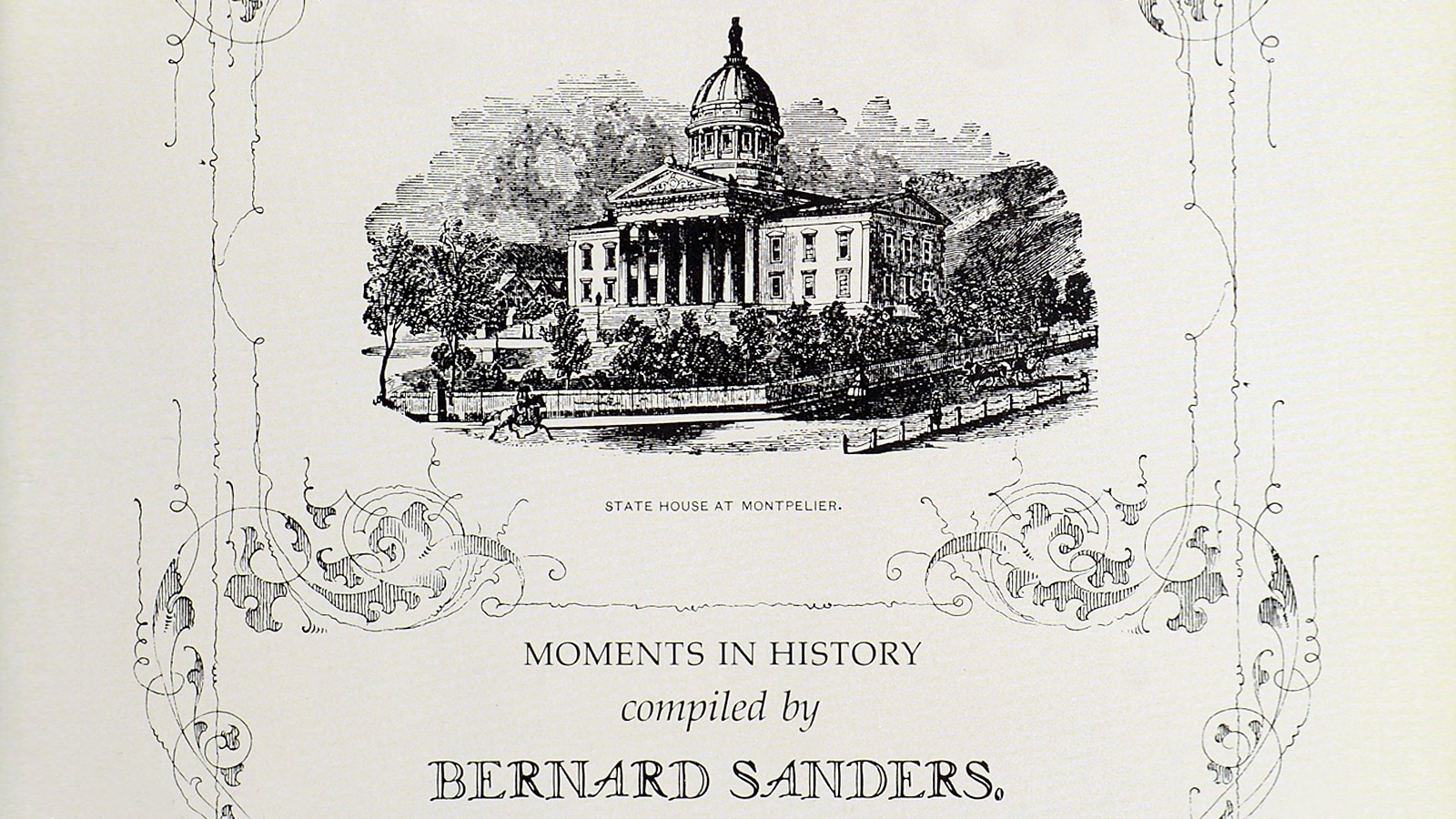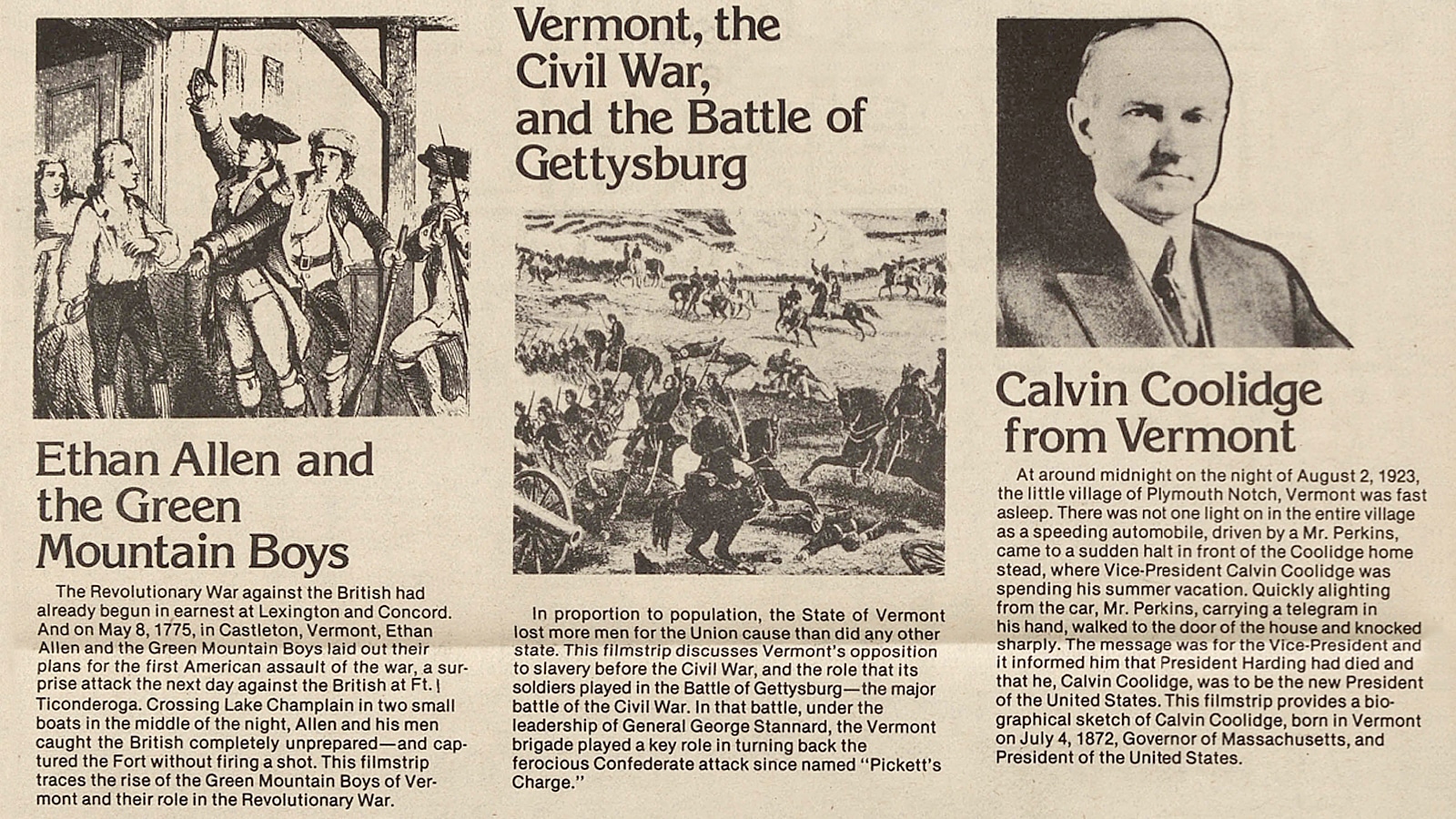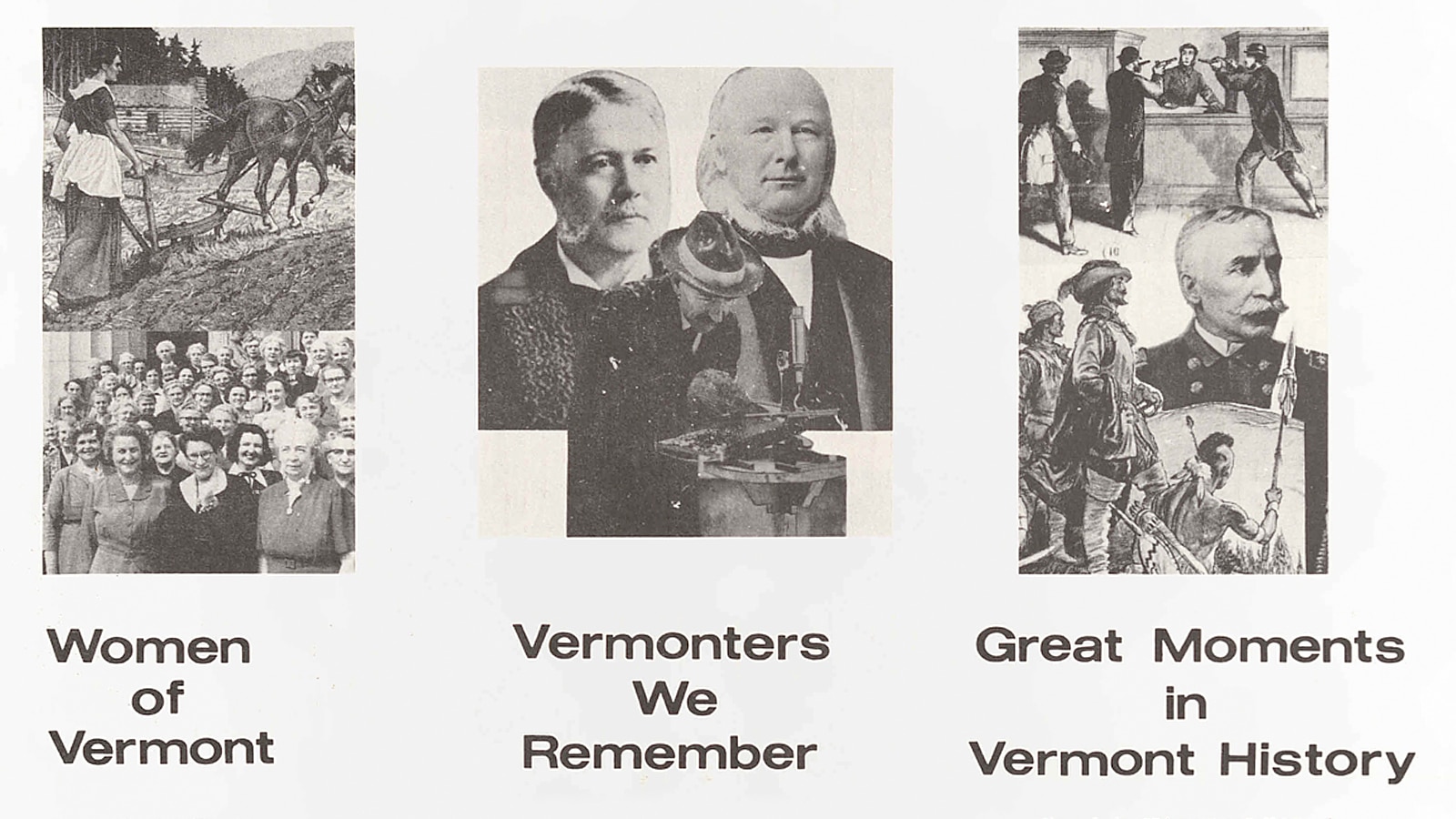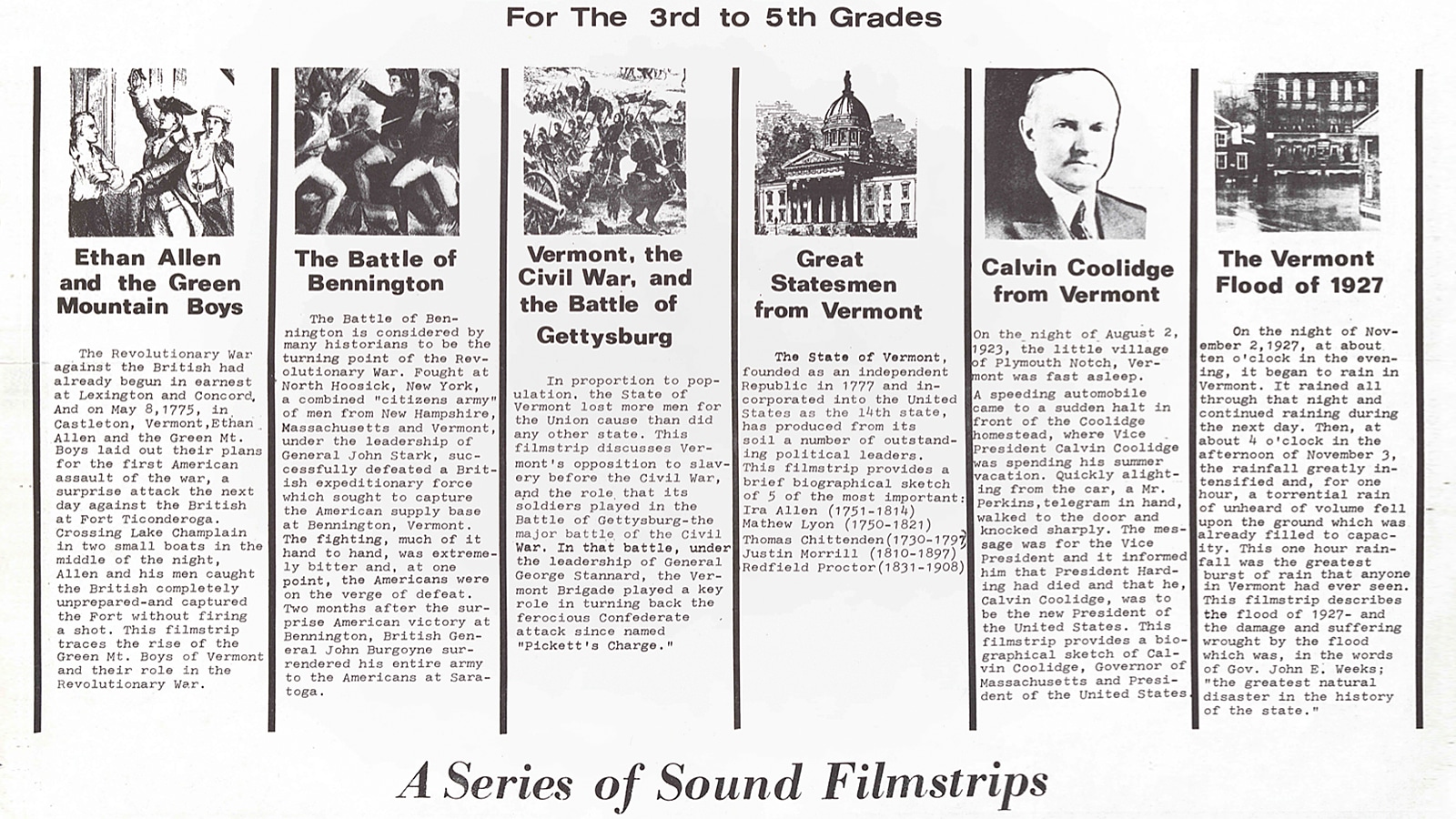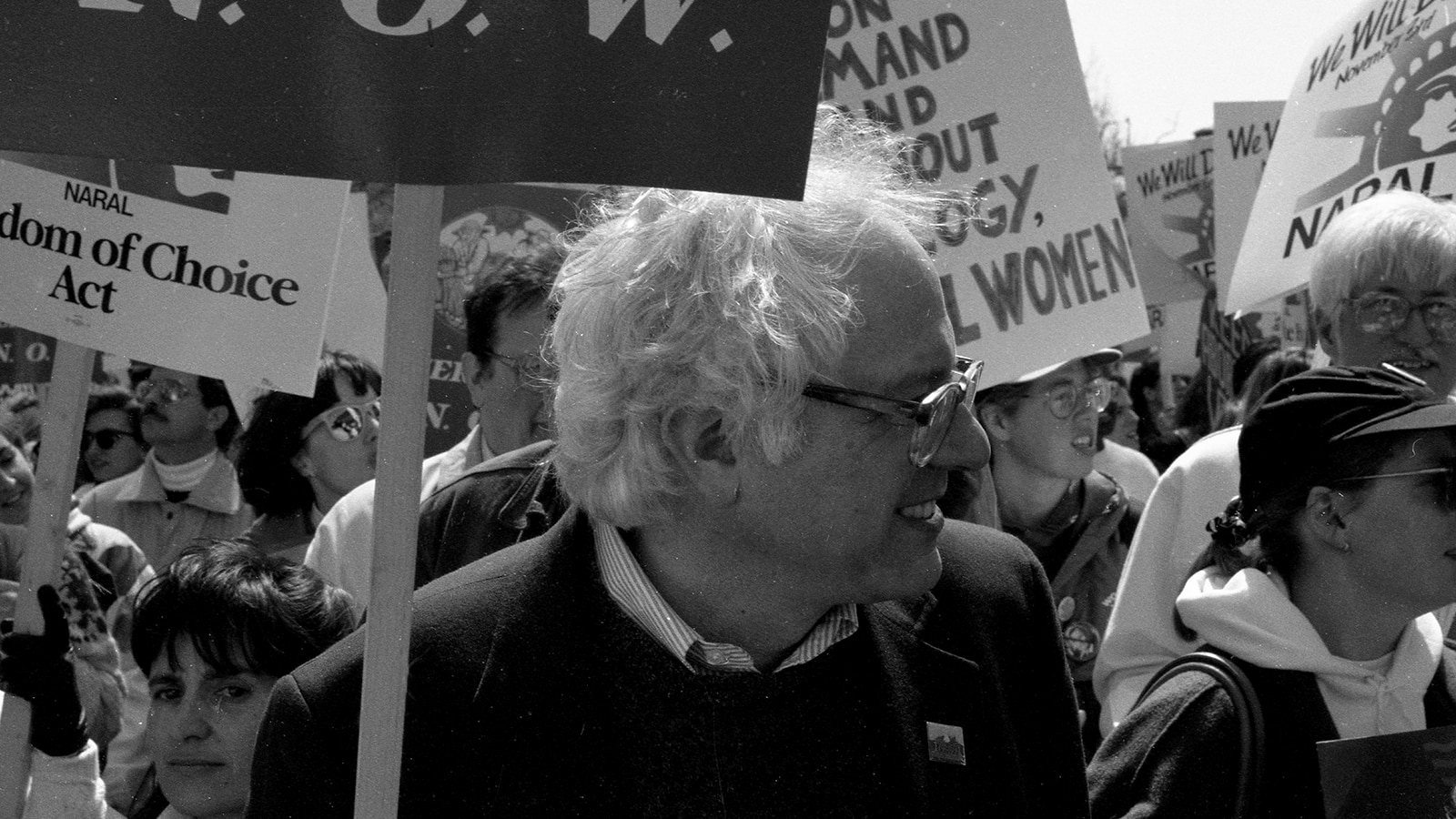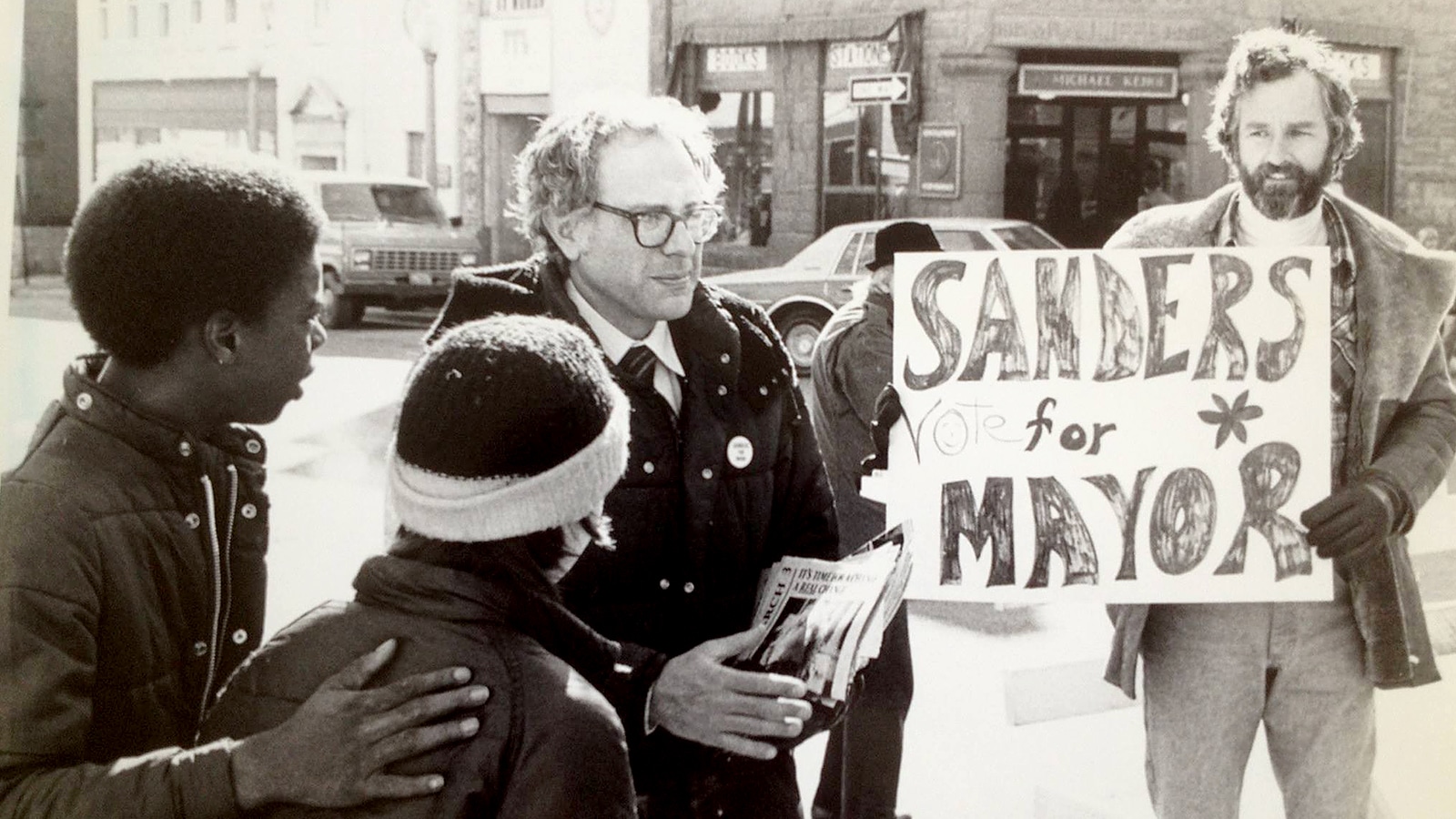In 1976, Bernie founded the American People’s Historical Society and served as the society’s film director from 1976 – 1981.
The educational organization produced filmstrips focused on historical and political issues that would address the needs of New England educators. Sanders explained, “It is our belief that state and regional history has too long been neglected by the audio-visual industry, and we are happy to begin the process of rectifying that situation. We believe that students have the right to learn about the state and region in which they are living.”[1]
Bernie drove all over New England, in sleet or snow, selling inexpensively produced film strips (Great Moments In Vermont History, Women Of Vermont, Vermont: The Civil War and The Battle of Gettysburg, and The Vermont Flood of 1927) directly to schools.[2] By 1979, he had moved to video with a half-hour-long documentary about socialist Eugene Debs, the twentieth-century union organizer who won a million votes from prison in the 1920 presidential election.[3]
There was just one problem: Vermont Educational Television (ETV) wouldn’t show it. ETV claimed its decision was made on quality grounds. Sanders viewed that as a cover for ideological objections. In the face of this rejection, Sanders and others formed Concerned Citizens on ETV, pressuring management to show more locally made content and hand greater say over its programming to the public.[3]
Before long, ETV caved on the Debs film. More importantly, it formed a board of community groups like farmers, feminists, artists, and the poor to make decisions about public television. However, Sanders’s film still didn’t air — he refused to let it run while ETV production workers were on strike, calling the idea “an insult to [Debs’s] memory.” The segment ran after the strike was over.
 Back to Timeline
Back to Timeline
